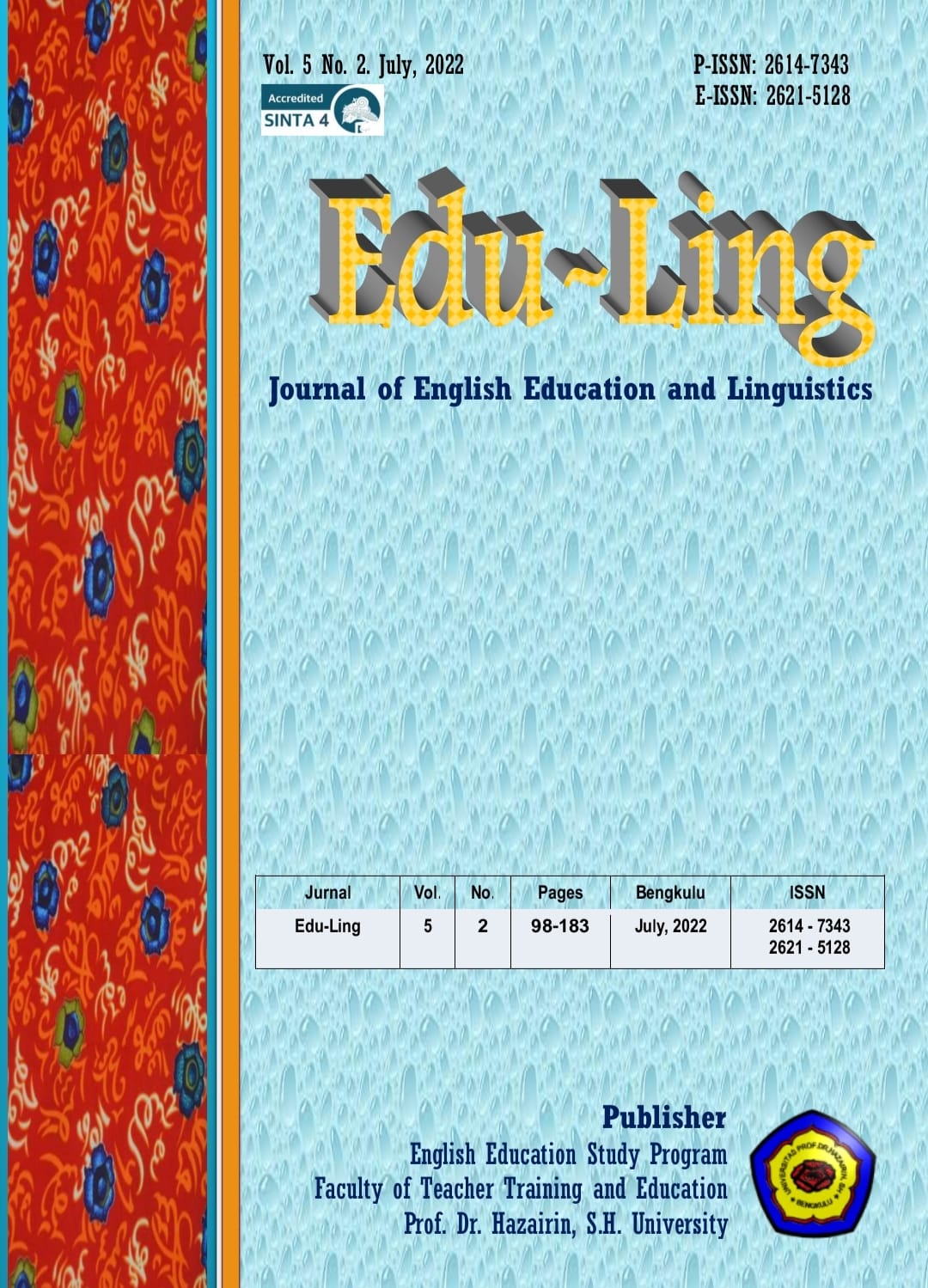A Descriptive Analysis Of Teachers’ Questions On English Online Learning At Senior High School Sint Carolus Bengkulu
DOI:
https://doi.org/10.32663/edu-ling.v5i2.3007Keywords:
teacher’s questions, online learning, level and function of questionsAbstract
The objectives of this research were to investigate the levels and functions of questions asked by English teachers in English Online Classes at SMP Sint Carolus Bengkulu. A descriptive qualitative design was applied in this current research. Three English teachers in that school were chosen as the participants. Video recording, observation checklists, and interviews were employed as the instruments. The observations were done in 9 meetings. The result showed that there were 520 questions, with 363 content-related questions indeed. The result revealed two points: (1) English teachers asked363 content-related questions out of 520 questions and applied all levels of Bloom’s revised taxonomy. The levels from the highest to the lowest frequency were understanding, remembering, evaluating, applying, analyzing, and creating. (2) English teachers asked 520 questions during the online class and applied all functions of questions. The functions from the highest to the lowest frequency were class management, checking understanding, developing vocabularies, factual elicitation, building on thinking, practicing skill, developing reflection, cued elicitation, building on content, checking prior knowledge, and recapping. Based on the data, it can be concluded that all levels and all functions of questions were applied by the three English teachers at SMP Sint. Carolus Bengkulu, yet it is suggested to teachers to improve their questioning skills, so that they can facilitate students to create their critical and creative thinking.









